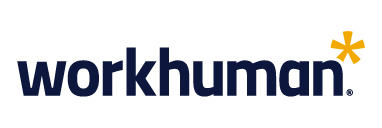Work has been transformed, too. However, with so many of us working remotely, the pressure associated with it has not come down. If anything, the opposite has happened; a staggering nine in ten people globally are reporting a worsening work life, recent research has found. Small wonder, then, that mental health and wellbeing ranks as a top priority for HR departments in 2021.
To attribute it all to the pandemic would be missing the mark. Since the first lockdown, society has seen rising levels of social turmoil and unrest, as well as sporadic crime and violence. Leaving the comfort of our homes and resuming normality – whatever shape it takes – might therefore seem like a daunting prospect.
UK workers appear to be much more reluctant to return to the office than their European peers, according to a recent survey. This has created something of a trust gap between workers and businesses. Left unaddressed, it could lead to an increased sense of frustration and disengagement.
To help bridge this gap, businesses will have to do more to give workers the solid ground and reassurance they are after. Here are some ways for organisations to re-frame their approach and instil confidence in the workforce.
Start with safety
Businesses have a duty of care towards workers. Employers can and should go far beyond the government guidance in ensuring that the workplace is COVID-proof. This can include encouraging workers to share any specific concerns, issuing a clear timeline, and being honest and forthcoming about expectations. Equipping people, in other words, with as much certainty as possible.
Businesses may also want to consider offering workers access to a personal safety app. This can arm them with more information about the types of risks they may be exposed to.
Increased awareness can also help ease the generalised stress people often experience as a result of protracted uncertainty or, in recent times, sporadic instability and a heightened incidence of crime.
Re-building a sense of safety is an exercise in empathy. Businesses should be putting themselves in the shoes of their workers and thinking: 'Are we doing our best to be compassionate and alive to people’s concerns? Can we do more to foster an atmosphere of safety and learn from feedback?'
This can be as much about concrete gestures and measures as it is about the language in which it’s communicated.
Reduce the noise
People have been consuming twice as much online content and information since the start of the pandemic. An always-on mindset seems to have taken root and it spells bad news for mental health and productivity. Around one in five people in the UK (18%) are experiencing stress as a result of information overload.
Inundated with information, people are beginning to feel spent and overwhelmed. This might be partly down to the sheer, growing volume of apps and data sources that people rely on.
While this goes far beyond work, employers can do their part to help manage information overload. Integrated and associated data sources, for example, that offer relevant, streamlined and personalised information can make it easier for people to get what they need when they need it.
Employers may also want to encourage a culture of 'switching off' and create clearer boundaries between work and personal life. Ensuring that unnecessary pressures are kept to a minimum can also help workers stay focused and positive.
Focus on purpose and wellbeing
Employers should resist a 'get-on-with-it' mindset. Focusing on purpose and wellbeing requires businesses to take a step back and look at the big picture. Re-articulating an organisation’s vision and mission and rallying people around them is especially important during these times of uncertainty.
This can inspire people, build morale and set direction. It is also likely to resonate with millennials, who cite purpose as their main driver.
Wellbeing is the other side of the same coin; employers that prioritise this and drive engagement will reap the benefits of a more productive workforce. This goes hand in hand with a stronger bottom line, as more engaged workers yield up to 21% more profitability, according to Gallup.
Attending to wellbeing also involves looking outside of work and making sure all aspects of a person’s life are taken into consideration. This includes, first and foremost, people’s families and loved ones. Only in this way can companies support workers in the most meaningful way possible.
If businesses follow this three-pronged approach, they can empower workers to be happier, more confident and connected. With the right tools in place, this can unlock a wealth of potential that can translate into stronger productivity and performance.
Mark Balaam is founder of Imabi










